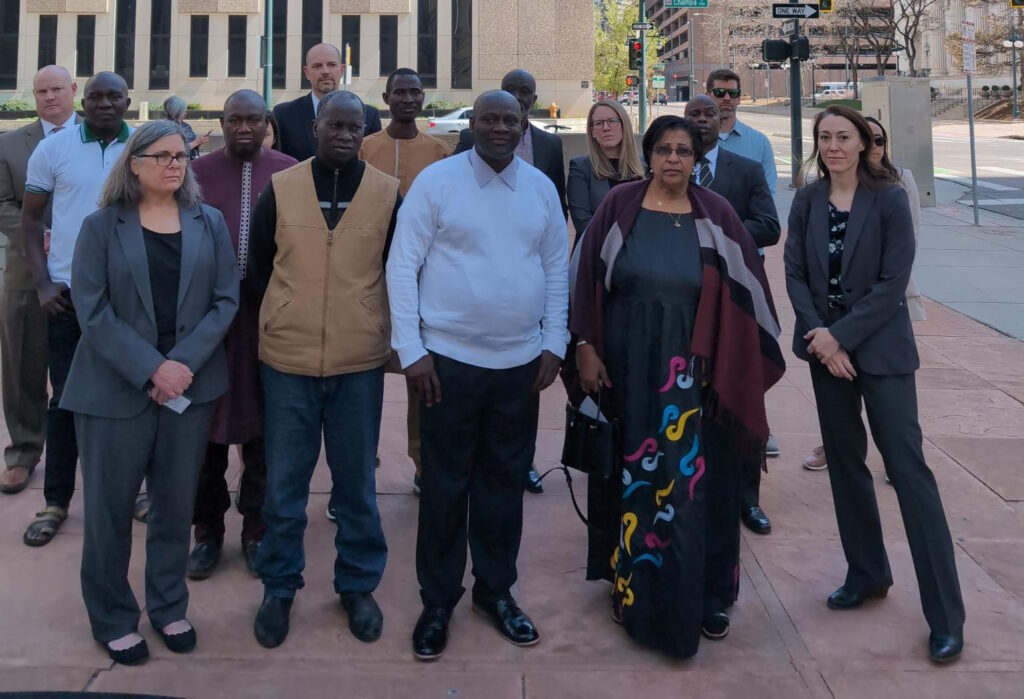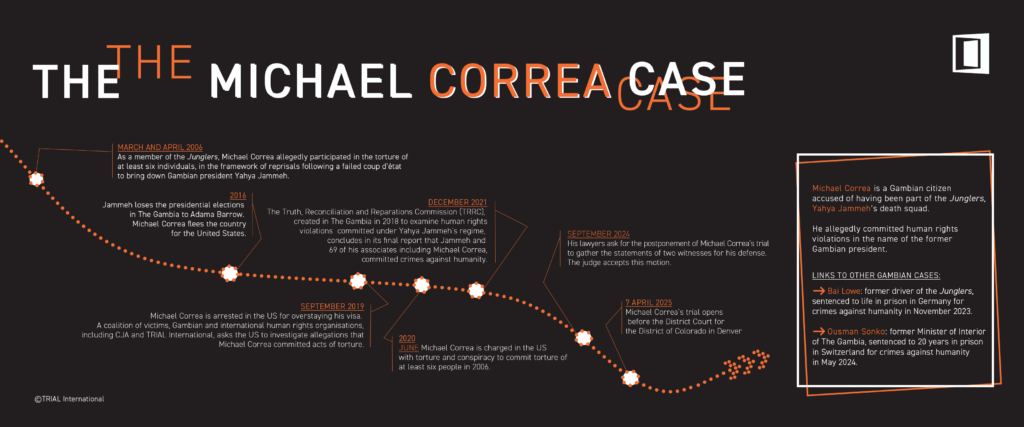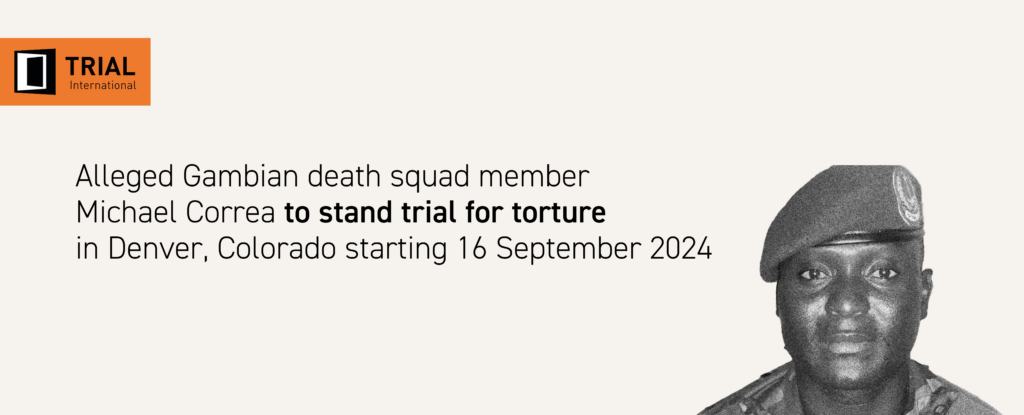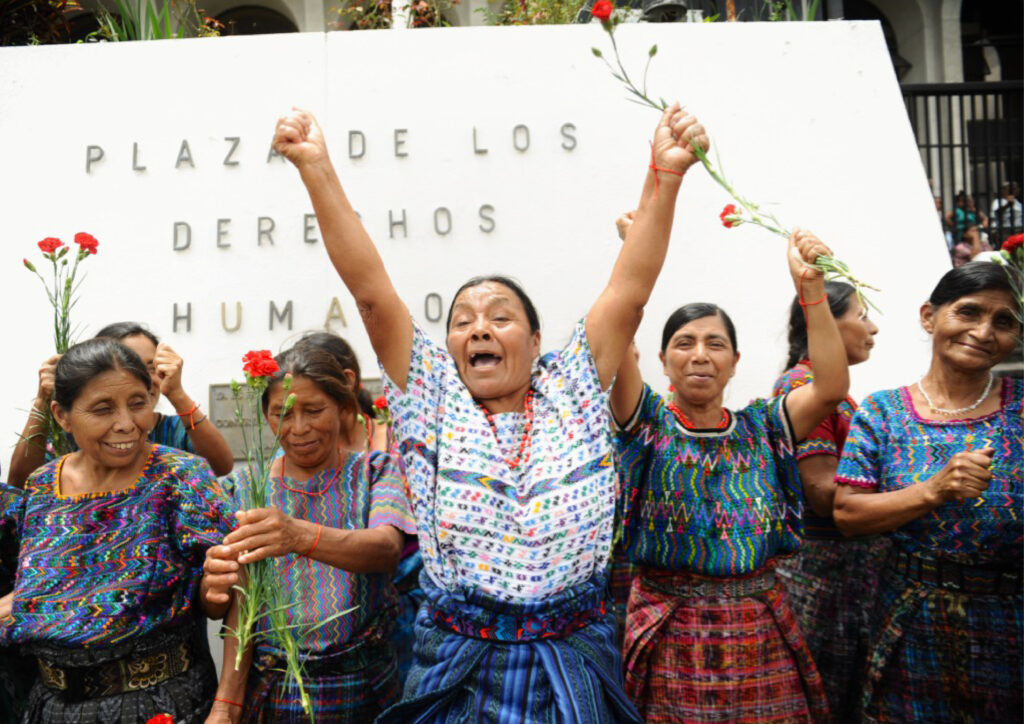Sarita Sharma: victim of enforced disappearance and torture during 2 years
In December 2013, TRIAL submitted an individual communication to the United Nations Human Rights Committee (HCR) regarding the multiple human rights violations related to the enforced disappearance, torture and arbitrary detention suffered by Mrs. Sarita Devi Sharma between 20 October 2003 and 30 June 2005. In 2018, the HRC reached its decision on this complaint: Nepal has a responsibility in this case.
The case
On 20 October 2003, Mrs. Sharma was arrested in the neighborhood of Chandol, Kathmandu, by members of the security forces wearing civilian clothes. Together with a friend of hers, she was handcuffed, blindfolded, forced into a military van and taken to the Maharajgunj barracks, at that time headquarters of the Bhairabnath Battalion of the Royal Nepal Army. There, she was detained in incommunicado and her detention was unacknowledged until August 2004. Nepalese authorities denied any involvement in her disappearance while actively concealing her fate and whereabouts.
In July 2004, due to her critical health conditions, Mrs. Sharma was brought to the army hospital of Chaauni where she remained for around two months. It was in the hospital that, on 25 August 2004, she fortuitously walked into an old friend of hers. Thanks to the latter’s complicity, Mrs. Sharma could sneak a letter out of the hospital and make her whereabouts public.
While her disappearance came to an end, her arbitrary detention was further prolonged. In the month of September 2004 the Army brought Mrs. Sharma back to Maharajgunj, where she was held until 30 June 2005.
During the entire period of her enforced disappearance and subsequent arbitrary detention Mrs. Sharma was subjected to severe mental and physical torture. Her detention conditions were inhuman. Mrs. Sharma’s disappearance and her subsequent arbitrary detention severely impacted on her family life.
Mrs. Sharma was finally released only after repeated attempts undertaken by her husband to find her. After a first petition of habeas corpus was quashed by the Supreme Court in 2004 due to State authorities’ denial of its involvement in Mrs. Sharma’s disappearance, a second petition of habeas corpus led the Supreme Court to declare Mrs. Sharma’s detention unlawful and order her liberation on 28 June 2005.
In despite of numerous efforts undertaken by Mrs. Sarita Sharma, more than 8 years after her release no ex officio, prompt, impartial, thorough and independent investigation has been carried out by Nepal authorities and no one has been prosecuted, judged and sanctioned for her enforced disappearance and for the torture she endured.
Procedure
In December 2013, TRIAL International, representing Mrs. Sharma’s husband, Mr. Bijaya Sharma Paudel, and her eldest son, Mr. Basanta Sharma Paudel, submitted the case to the HRC.
On 6 April 2018 the UN Human Rights Committee reached its decision on the communication submitted in 2013.
The UN Human Rights Committee found Nepal responsible for the violations of the rights to life, the prohibition of torture and the right to liberty and security of person and the right to recognition as a person before the law. Therefore, the Human Rights Committee request Nepal to:
- Carry out a thorough and effective investigation into the detention of Mrs Sharma.
- Prosecute, try and punish the perpetrators
- Provide Mrs Sharma with information regarding the investigation
- Ensure Mrs Sharma with adequate and necessary psychological rehabilitation and medical treatment.
- Provide Mrs Sharma with adequate measures of reparations including adequate measures of compensation and satisfaction.
- Prevent similar violations in the future by criminalizing torture and enforced disappearance and provide for appropriate sanctions and remedies commensurate with the gravity of the crimes.
General context
The enforced disappearance of Mrs. Sarita Sharma took place in the context of the internal armed conflict affecting Nepal between February 1996, when the Communist Party of Nepal (Maoist) declared war against the official governmental authorities of Nepal, and November 2006, when the different parties to the conflict signed the Comprehensive Peace Agreement.
The decade-long armed conflict (1996 – 2006) caused not only severe economic and social damage in Nepal but also put the country’s name in the list of the top human rights violators worldwide. Enforced disappearances, torture, summary executions and arbitrary detentions by both State agents and Maoists were widespread during this period. According to the Office of the High Commissioner for Human Rights, some 1,300 alleged enforced disappearances that still remain unaccounted for took place during this period.










